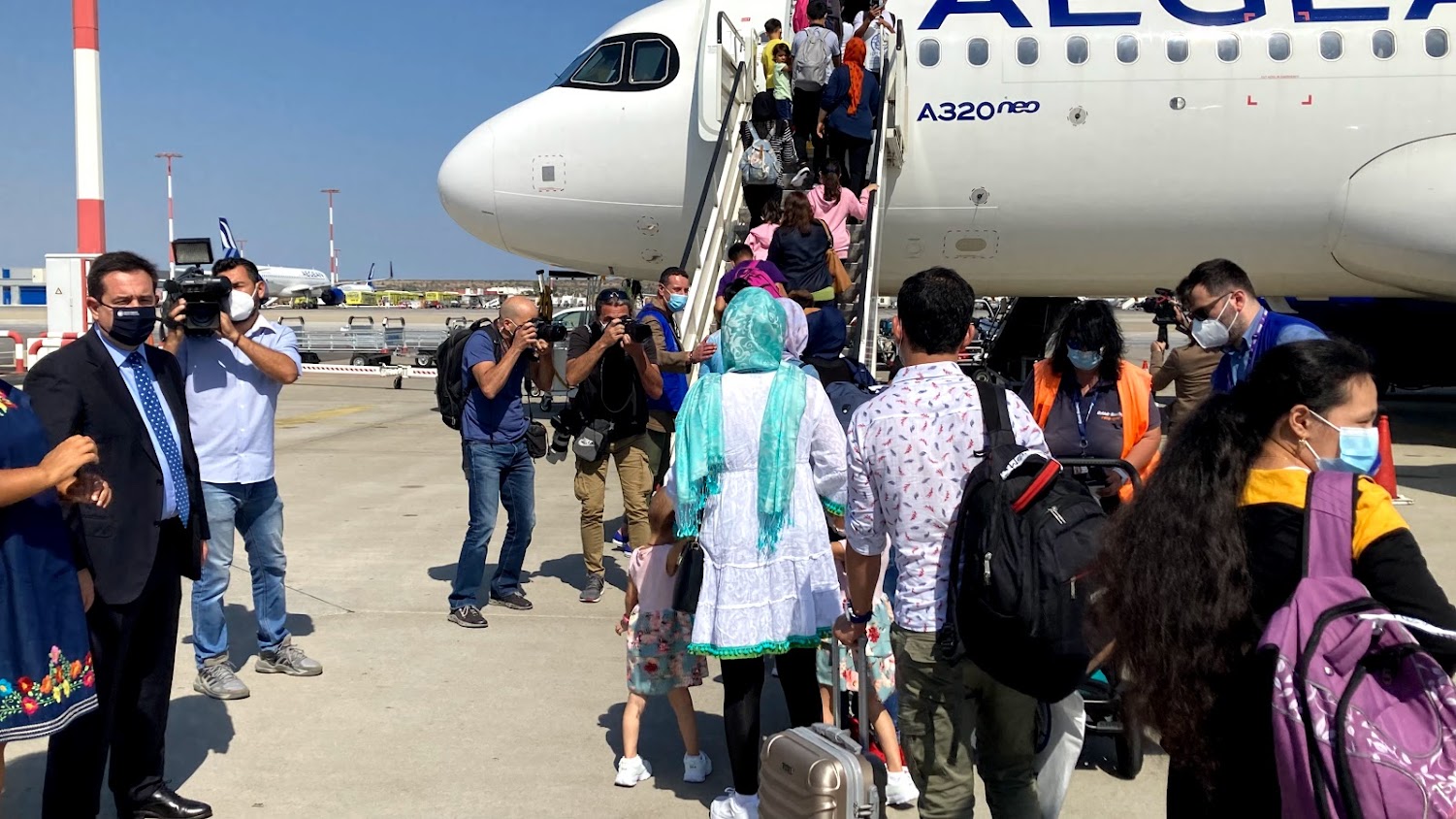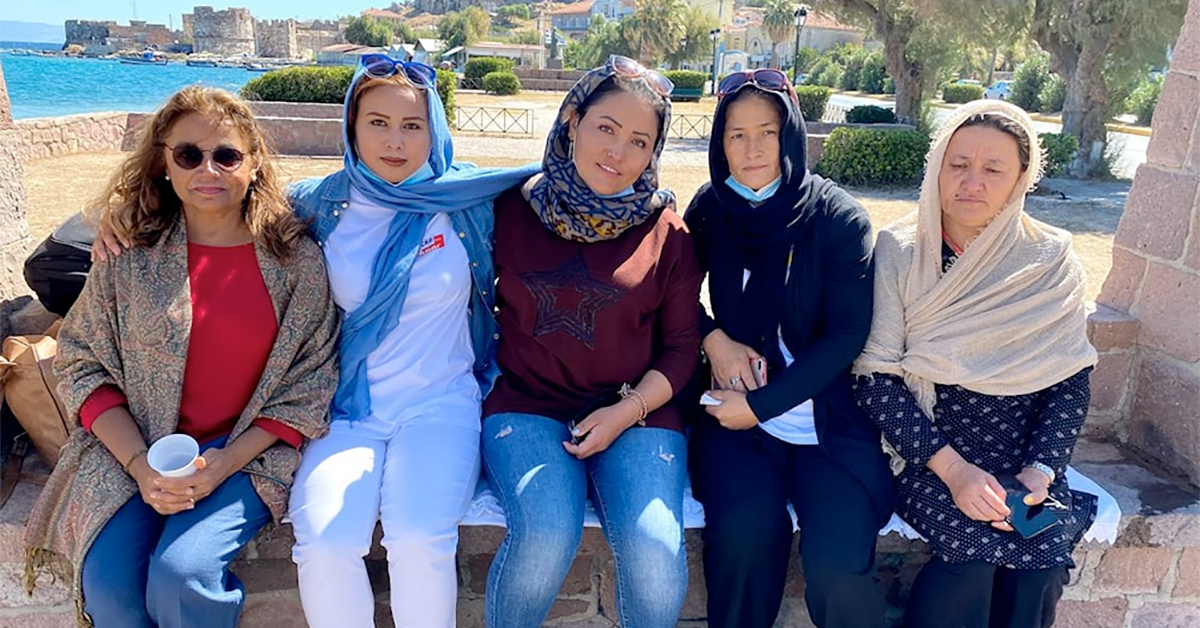What drives people to leave their homes, their families, their culture, and confront the struggles of immigration? Last summer, Seema Pissaris, FIU Business clinical professor of international business, tried to answer this very question as part of a small team helping Afghan migrants in Greece.
Pissaris was a volunteer for Focus Humanitarian Assistance, a non-governmental organization that assists refugees around the world. She spent six months aiding more than 1,000 migrants spread over 15 refugee camps across Greece.
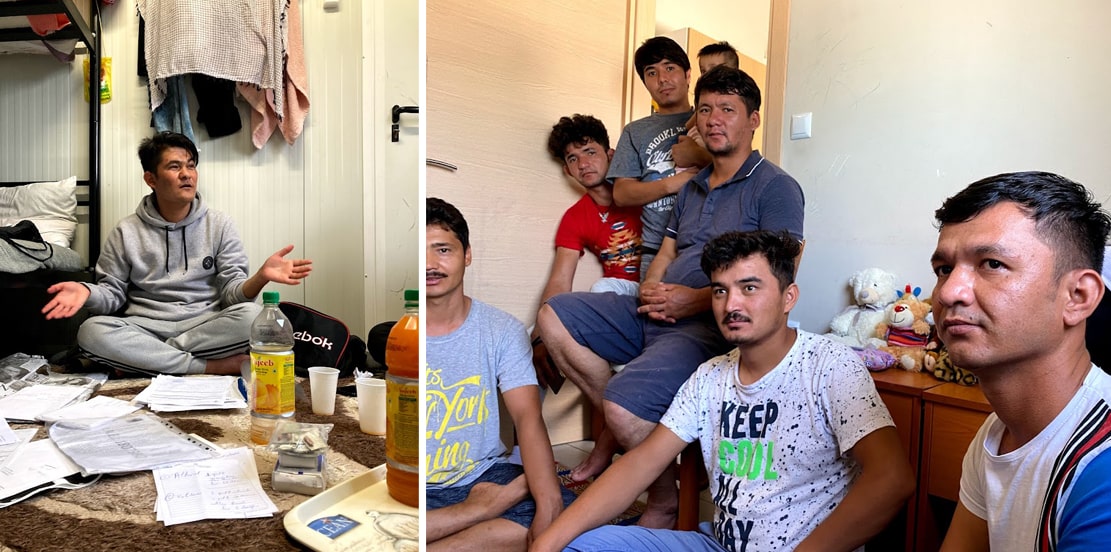
“Migration can be punishing – physically, economically, emotionally, and mentally,” said Pissaris. “The journey to get to Greece itself is harrowing, as migrants traverse through dangerous routes across multiple countries. Listening to their stories of pain and anguish, I was struck by the power of their fortitude to pursue a better quality of life.”
Pissaris met with families who lived in a small camping tent with four or five young children, babies who could not learn to crawl due to lack of space. There were unaccompanied minors as young as 12 years old who have no family, no community, who feel totally alone, and are unable to speak the language. She heard stories of illnesses, abuse, death.
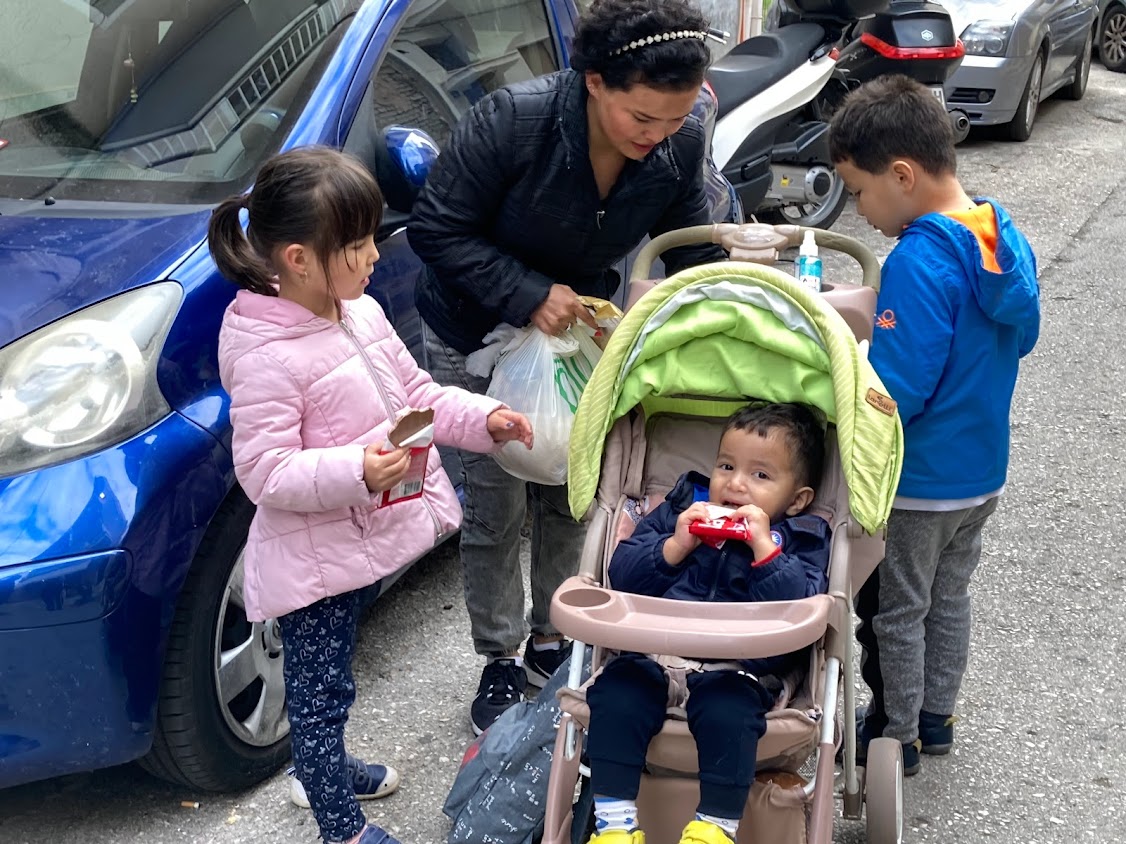
Academic research informs real-world planning.
Earlier in the year, Pissaris had conducted research on whether migration can be more structured and how institutions in sending and receiving countries can create policy and enabling environments so that migrants can resettle more successfully.
“It is very different to write a paper on migration and to witness the actual struggle of migrants,” she said. “The living conditions of a migrant camp; the being pulled apart from your family, from your home; the demands of a new culture, language, customs; the challenge with integration and access to education, economic pathways, medical and social services.”
The issues are complex, and the numbers in need are substantial. In November 2021, a report from the Migration and Asylum Minister indicated that there are currently 35 immigration facilities in Greece with roughly 36,000 migrants. As of September 2021, Greece has granted asylum to 103,136 people.
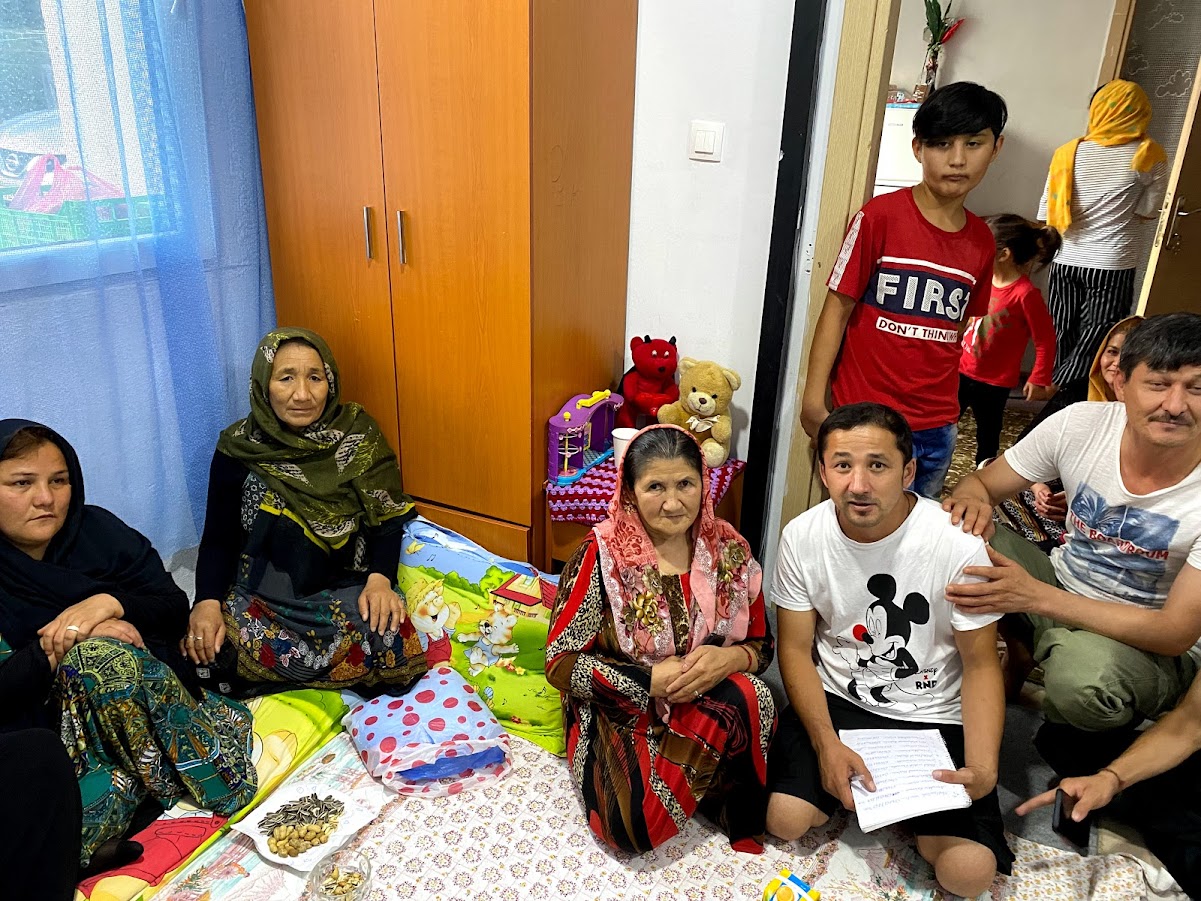
As part of its work with the Afghan refugees, Focus collaborated on a bilateral resettlement agreement between the governments of Greece and Portugal.
The team Pissaris was part of helped to resettle 84 individuals in September and October 2021, providing support in both Greece and Portugal. New arrivals were provided access to housing, education, language classes, medical and social services and economic pathways. So far, the program has been a success and the two countries have agreed to scale up to a total of 1,000 migrants in 2022.
“The process of resettlement has been difficult, the logistics daunting,” said Pissaris. “We are identifying best practices on how to screen, prepare, skill, resettle, and integrate migrants on a scaled level.”
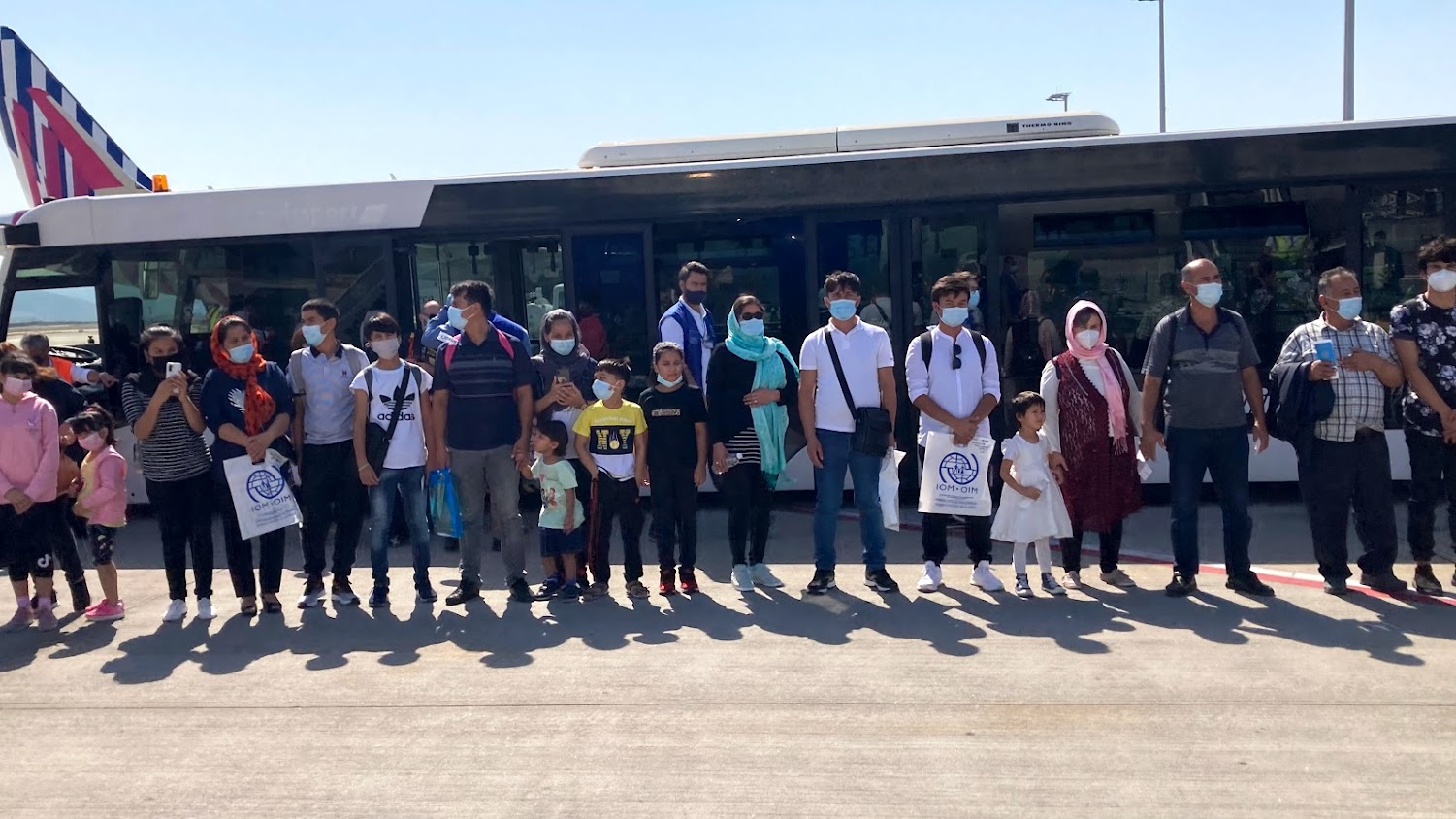
Bringing insights from abroad back to the classroom.
While Pissaris is ready to return to Greece and continue her work on the ground, she’s determined to bring her experience into the classroom, integrating it into the curriculum of her entrepreneurship, strategic management and leadership in a global environment courses.
“It’s one thing to observe a situation and quite another to become engaged, inspire change, contribute to the process and really lead through a solution,” Pissaris added. “These are the critical skills that the world needs now.”
